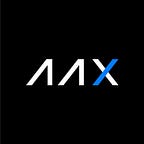The Way of The Decentralized Autonomous Organization (DAO) — AAX Academy
While a DAO has nothing to do with Daoism, ironically, both the DAO as a concept and the tradition share a dislike of central overreach.
Irony aside, in the crypto world the term DAO stands for “decentralized autonomous organization” and can be described as an open-source blockchain protocol governed by a set of rules, created by its elected members, that automatically execute certain actions without the need for intermediaries.
What is a DAO?
In very practical terms, imagine a company with no CEO, no staff, no entity, no jurisdiction and no owner, but still operational through the simple — but also very very complex — process of decentralized token-based governance.
In this definition, the Bitcoin Network constitutes a DAO pur sang. It’s a special type of organization that operates at the behest of the multitude; nobody owns it, all can participate in its governance. The resilience of a DAO such as Bitcoin is that the larger it gets and the more decentralised it gets, the more resilient and reliable the network becomes. In a way, similar to Daoism, it charts a middle way.
What’s attractive here is that the network is functionally non-sovereign, a perfect basis for a globalized enterprise. As an open network, the Bitcoin protocol is also used to build ventures on top, both centralized like certain custody providers, and decentralized like the Lightning Network.
As for the DAO’s rules, these are embedded into computer code, which executes by itself based on the behavior of the protocol. There is no need to interpret these program rules as they are automatically implemented when the specified conditions occur.
Both the program rules and subsequent actions are recorded on a transparent and secure blockchain ledger, which cannot be tampered with thanks to an immutable timestamp and the distribution of the information to the network participants.
The rules that govern a DAO can be very complex and hard to change after they come into effect, as any changes would be incumbent on the writing of new code and network approval by consensus.
DeFi and DAOs
While Bitcoin arguably constitutes the most exemplary DAO, in the crypto space DAOs are usually associated with DeFi protocols and projects.
The concept of a DAO was first articulated by BitShares, Steemit and EOS (Block.one) founder Dan Larimer in 2015, and further refined by Ethereum’s Vitalik Buterin in 2016.
The recent explosion in decentralized finance (DeFi) protocols has led to a rise in the popularity of DAOs in 2020, as many yield farming and decentralized exchange (DEX) platforms like Compound (COMP), yearn.finance (YFI) and Uniswap (UNI) are dependent on them for governance.
Learn more:
A New Way Of Private Governing
In a DAO, participants are not obligated by a legal contract, but rather incentivized by rewards in the form of native asset tokens that help them work towards a unified goal. It’s actually not different from shareholders who together vote on the direction of a company, except that it’s subject to the immutable law of code, meaning the decision process and outcomes must all comport with the base code.
In a world where Tech Giants and Surveillance States operate a centralized Internet and corporate structure, on the fringes of the Web the DAO is rising as a powerful alternative.
Decentralized networks and organizations such as Bitcoin and other projects around decentralized finance are enabling netizens of the world to organize themselves across borders without permission. It’s not difficult to imagine that as governments and corporations continue to roll out instruments of control and tighten regulation that more and more enterprises might opt for a decentralized mode of operation to ensure survival, if not sustained growth.
Originally published at https://academy.aaxspace.com on August 15, 2021.
